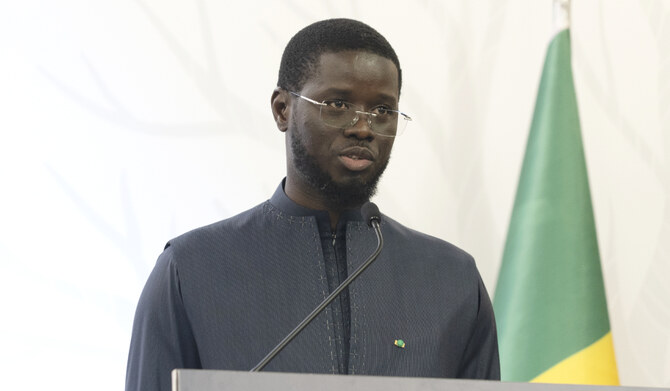DAKAR: Senegalese President Bassirou Diomaye Faye asked for more European support to tackle instability in the Sahel as Spanish Prime Minister Pedro Sanchez wrapped up a visit to West Africa.
The troubled Sahel states of Mali, Burkina Faso, and Niger are plagued by extremist violence and ruled by juntas who took power in a string of coups since 2020.
Military leaders in the three countries have increasingly turned their backs on the West, breaking away from the West African bloc ECOWAS to form their confederation.
“The situation in the Sahel in the face of terrorism calls for a global mobilization of the international community,” said Faye, who is the ECOWAS-appointed facilitator in negotiations with the three states.
He called for more European backing, saying, “it is well known that the continents of Africa and Europe have a linked security destiny,” during a press conference with Sanchez.
Sanchez lauded Senegal’s mediation efforts in the Sahel, adding: “This region is of the utmost strategic importance for my country ... and we wish to contribute to its stability and prosperity.”
Mali, Burkina Faso, and Niger have severed ties with former colonial ruler France, expelling French troops fighting jihadists turned to what they call their “sincere partners” — Russia, Turkiye and Iran.
Senegal was the third and final leg of Sanchez’s three-day West African tour, focused on curbing a surge in irregular migrant arrivals from the region.
Spain signed “circular migration” agreements with Mauritania and The Gambia on Tuesday and Wednesday, establishing a framework for regular entry into Spain based on labor needs.
Senegal already had a migration agreement with Spain aimed at regularising arrivals.
Sanchez announced the signing of a new accord with Dakar covering new economic sectors, including training for Senegalese who settle in Spain.
Senegal is one of the main departure points for the thousands of Africans who attempt the dangerous Atlantic route each year to reach Europe, mainly through Spain’s Canary Islands.
Senegal’s army on Wednesday announced the latest rescue operation off the Moroccan coast involving a stranded boat carrying 41 migrants, including 28 Malians, 12 Senegalese, and one Ivorian.
























